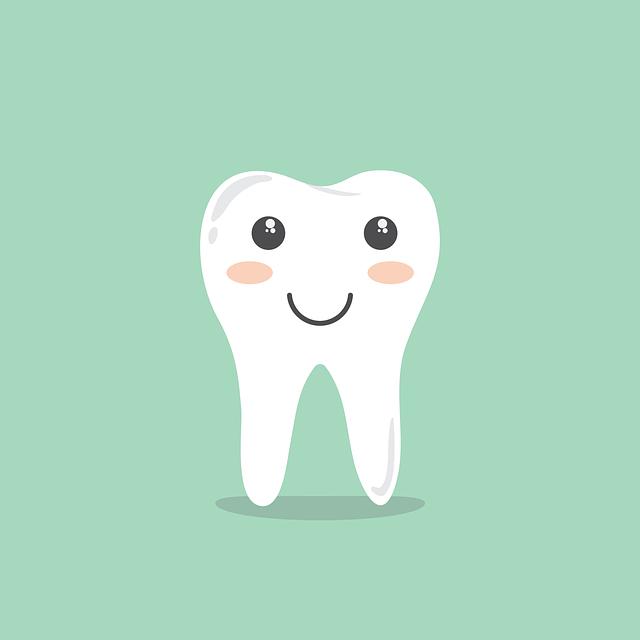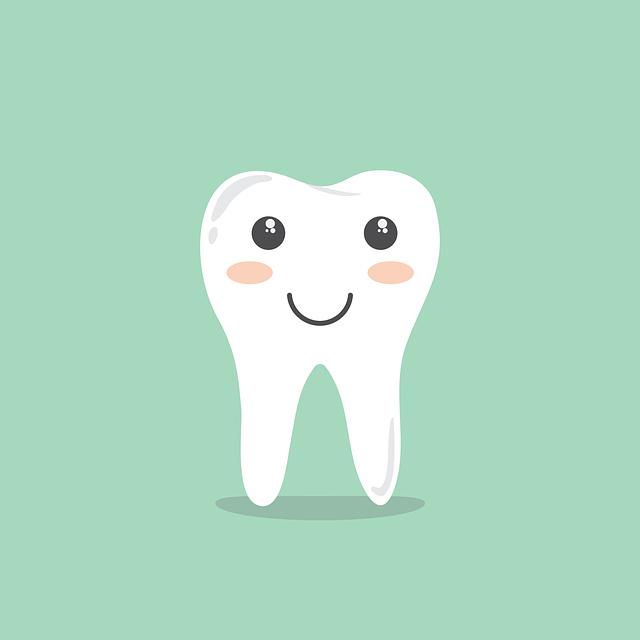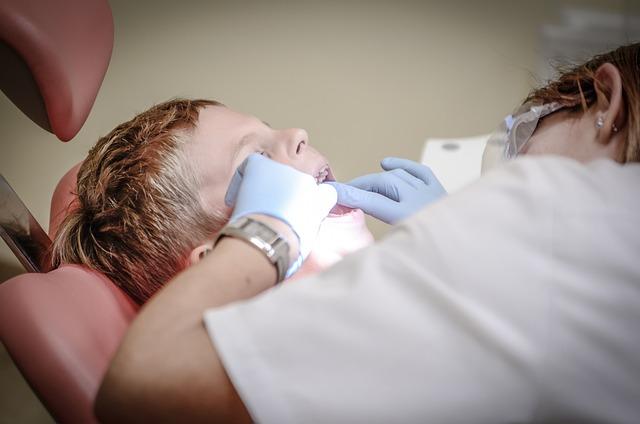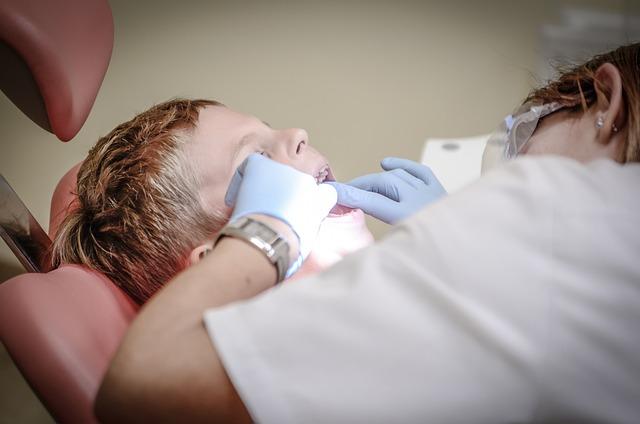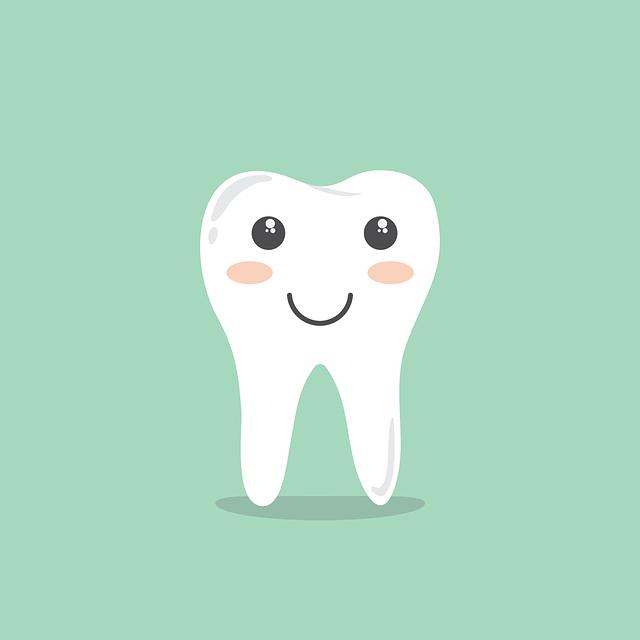When to Stop Saltwater Rinse After Wisdom Teeth Removal? Dental Advice
Wisdom teeth removal is a common dental procedure that many of us will face at some point in our lives. And while the surgery itself might be over, the recovery process is just beginning. One aspect of this recovery that often causes confusion is when to stop saltwater rinses. With so much conflicting information out there, it can be challenging to know what’s best for your oral health. But fear not, as we dive into this topic, we will provide you with confident, knowledgeable, and neutral advice that will not only clear up any doubts but also guide you towards a smooth and speedy recovery. So let’s put an end to the uncertainty and take a deep dive into the world of saltwater rinses after wisdom teeth removal.
1. The Importance of Saltwater Rinse After Wisdom Teeth Removal: A Dental Perspective
After undergoing wisdom teeth removal, it is crucial to understand the significance of saltwater rinses for optimal post-operative care. As dental professionals, we emphasize the following points:
- Promotes healing: Saltwater rinses act as a natural disinfectant, reducing the risk of infection and promoting healing. The gentle saline solution helps to cleanse the surgical site, preventing the buildup of bacteria and debris.
- Reduces swelling: Saltwater rinses can help alleviate swelling and inflammation in the gums and surrounding tissues. The soothing effect of the saline solution aids in reducing discomfort and promotes a faster recovery.
- Minimizes discomfort: By gently flushing the surgical area, saltwater rinses provide relief from discomfort and aid in the removal of food particles or other debris that may have accumulated.
It is important to note that the saltwater rinse should be prepared properly. Dissolve half a teaspoon of salt in eight ounces of warm water, ensuring that the solution is not too hot or cold. Gently swish the solution in your mouth for approximately 30 seconds before spitting it out. Repeat this process two to three times a day, especially after meals, for optimal results. Remember, maintaining good oral hygiene practices, including regular brushing and gentle flossing, alongside saltwater rinses, will greatly contribute to a smooth recovery and overall oral health.

2. Understanding the Healing Process: When Can You Safely Stop Saltwater Rinse?
The healing process after a dental procedure can vary depending on the individual and the specific treatment. While saltwater rinses can be beneficial for promoting healing, it is important to understand when it is safe to stop using them. Here are some key factors to consider:
- Follow your dentist’s instructions: Your dentist will provide specific guidelines on how long you should continue using saltwater rinses after your procedure. It is crucial to follow their instructions to ensure proper healing.
- Observing the healing progress: Monitor the healing progress of your oral tissues. If you notice significant improvement, such as reduced swelling or pain, and the wound appears to be closing, you may be nearing the end of the saltwater rinse phase.
- Consultation with your dentist: If you are unsure about when to stop saltwater rinses, it is always best to consult with your dentist. They can evaluate your healing progress and provide personalized advice based on your specific situation.
Remember, each person’s healing process is unique, and it is crucial to listen to your dentist’s guidance. By understanding the healing process and knowing when it is safe to stop saltwater rinses, you can promote optimal healing and ensure a successful recovery.
3. Post-Extraction Care: Guidelines for Stopping Saltwater Rinse after Wisdom Teeth Removal
After undergoing wisdom teeth removal, it is crucial to follow proper post-extraction care to ensure a speedy and successful recovery. One important aspect of this care is the saltwater rinse, which helps to keep the extraction site clean and prevent infection. However, it is equally important to know when and how to stop the saltwater rinse to avoid any complications.
Here are some guidelines to follow for stopping the saltwater rinse after wisdom teeth removal:
- Continue saltwater rinses for the first 24-48 hours after the surgery to maintain oral hygiene and reduce swelling.
- After the initial 48 hours, gradually reduce the frequency of saltwater rinses to once or twice a day.
- Once the extraction site has healed and there is no more swelling or discomfort, it is safe to discontinue the saltwater rinse completely.
Remember, it is essential to consult with your dentist or oral surgeon before making any changes to your post-extraction care routine. They will provide personalized advice based on your specific situation and ensure that your recovery progresses smoothly.
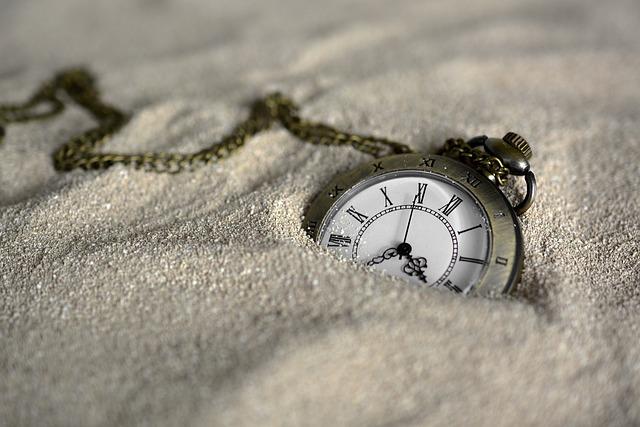
4. Timing Is Key: When to Gradually Reduce Saltwater Rinse Frequency
When it comes to saltwater rinses, timing plays a crucial role in achieving optimal results. Gradually reducing the frequency of your rinses is essential to ensure a smooth transition and maintain oral health. Here’s a guide to help you determine when it’s appropriate to reduce your saltwater rinse frequency:
- Initial Phase (Days 1-3): During the first few days after a dental procedure or injury, it’s recommended to perform saltwater rinses at least four to six times a day. This helps keep the area clean and promotes healing.
- Transition Phase (Days 4-7): As the initial healing progresses, you can gradually reduce the saltwater rinse frequency to three times a day. However, continue to closely monitor the healing process and consult with your dentist if necessary.
- Maintenance Phase (Day 8 onwards): Once the initial healing is complete, you can further reduce the saltwater rinse frequency to twice a day. This is usually sufficient to maintain oral health and prevent infection.
Remember, it’s crucial to consult with your dentist before making any changes to your saltwater rinse routine. They will provide personalized guidance based on your specific oral health needs and the type of dental procedure you’ve undergone. By following the recommended timing for reducing rinse frequency, you’ll ensure a successful recovery and maintain excellent oral hygiene.

5. Signs of Healing: How to Recognize When Saltwater Rinse is No Longer Required
Once you’ve experienced oral surgery or a dental procedure, using a saltwater rinse is a common way to aid in the healing process. However, it’s important to know when you can stop relying on this method and allow your body to heal naturally. Here are some signs that indicate you no longer need to use a saltwater rinse:
- No pain or discomfort: One of the first signs that your healing is progressing well is the absence of any pain, swelling, or tenderness in the affected area. When you can chew, speak, or brush your teeth without experiencing any discomfort, it’s a positive indication that your saltwater rinse is no longer necessary.
- Wounds are closed: If you had any incisions or wounds from your procedure, they should gradually close up as the healing process takes place. Once these wounds have fully closed and there are no signs of infection or discharge, it’s a clear sign that you can discontinue the saltwater rinse.
- Reduced inflammation: Swelling and inflammation are common after dental procedures, but as your body heals, these symptoms should gradually subside. If you notice a significant reduction in inflammation or swelling, it’s a good indication that you can stop using the saltwater rinse.
Remember, it’s always best to consult with your dentist or oral surgeon to confirm when it’s appropriate to discontinue any post-treatment care, including saltwater rinses. They can provide personalized guidance based on your specific situation and ensure that your healing process is progressing smoothly.

6. Consulting Your Dentist: The Final Decision on Stopping Saltwater Rinse
When it comes to deciding whether or not to continue using a saltwater rinse for your dental care, consulting your dentist is crucial. Your dentist is the best person to provide you with expert advice and guidance tailored to your specific dental needs. Here are a few key reasons why seeking your dentist’s opinion is important:
- Your dentist understands your unique dental health: Every individual has different oral health conditions and concerns. By consulting your dentist, you can receive personalized advice based on your specific needs. They will evaluate your dental history, current conditions, and any ongoing treatments to determine if a saltwater rinse is beneficial for you.
- Professional expertise: Dentists have extensive knowledge and experience in oral care. They are trained to identify potential oral health issues and provide suitable solutions. By discussing your saltwater rinse with your dentist, you can gain insights into its benefits and potential drawbacks. They may also recommend alternative dental care practices that could be more effective for your oral hygiene.
- Monitoring and follow-up: If you have been using a saltwater rinse, your dentist can monitor its impact on your dental health. Regular check-ups enable them to assess any changes or improvements in your oral condition. They can guide you on adjusting the frequency or duration of the rinse, ensuring that it aligns with your overall dental care plan.
Remember, your dentist’s advice is invaluable in making the final decision about whether or not to continue using a saltwater rinse. They will consider your oral health needs, provide professional insights, and help you maintain optimal dental hygiene.
7. Maintaining Oral Hygiene: Alternatives to Saltwater Rinse After Wisdom Teeth Removal
After the removal of wisdom teeth, it is crucial to maintain oral hygiene to promote healing and prevent infections. While saltwater rinses are commonly recommended, there are alternative options that can be equally effective. Here are a few alternatives to consider:
- Chlorhexidine mouthwash: This antiseptic mouthwash is often prescribed by dentists after oral surgeries. It helps reduce bacteria and prevents infections. Use it as directed by your dentist.
- Warm saline solution: Similar to saltwater rinse, you can prepare a warm saline solution by dissolving 1/4 teaspoon of salt in 8 ounces of warm water. Rinse your mouth gently with this solution multiple times a day.
- Clove oil rinse: Clove oil has natural analgesic and antibacterial properties. Dilute a few drops of clove oil in a cup of water and rinse your mouth with it to help relieve pain and reduce the risk of infection.
Remember, maintaining good oral hygiene is essential for a speedy recovery after wisdom teeth removal. Whatever alternative you choose, be sure to follow the instructions provided by your dentist and continue practicing regular brushing and flossing to keep your mouth clean and healthy.
8. Preventing Infections: Why Continuing Saltwater Rinse May Be Advised in Some Cases
Saltwater rinse is a simple yet effective remedy for preventing infections in certain cases. This practice involves rinsing the mouth with a solution of warm water and salt. While it may seem like a traditional remedy, there is scientific evidence to support its efficacy in reducing the risk of infections. Here are some reasons why continuing saltwater rinse may be advised:
1. Promotes healing: Saltwater rinse creates an environment in the mouth that is unfavorable for the growth of bacteria. The salt helps to draw out excess fluid from the tissues, reducing swelling and promoting faster healing of wounds or sores.
2. Reduces inflammation: Saltwater rinse has anti-inflammatory properties that can help alleviate discomfort and reduce inflammation in the mouth. This can be particularly beneficial for individuals with gum disease, as it may help soothe irritated tissues and prevent further infection.
3. Cleanses the mouth: Saltwater rinse acts as a natural mouthwash, helping to remove food particles, debris, and bacteria from hard-to-reach areas. It can be especially useful after dental procedures or in cases of oral infections, as it aids in keeping the mouth clean and free from harmful microorganisms.
Remember, while saltwater rinse can be beneficial in certain cases, it is always important to consult with a healthcare professional or dentist before starting any new oral hygiene practices. They can provide personalized advice and determine if saltwater rinse is appropriate for your specific situation.
9. Monitoring Your Progress: Regular Check-ups to Determine When to Stop Saltwater Rinse
Regular check-ups are essential to monitor the progress of your saltwater rinse treatment and determine when it’s time to stop. By scheduling these check-ups, you can ensure that your oral health is improving and track any changes that need to be addressed. Here are some key points to consider when it comes to monitoring your progress:
- Frequency: It is recommended to schedule check-ups every three to six months, depending on the severity of your condition and the advice of your dentist or healthcare professional.
- Evaluation: During these check-ups, your dentist will evaluate the effectiveness of the saltwater rinse treatment and assess any improvements in your oral health. They will examine your teeth, gums, and overall oral hygiene.
- Discussion: It’s important to have open and honest communication with your dentist about any concerns or issues you may be experiencing. They can provide guidance, answer your questions, and make any necessary adjustments to your treatment plan.
Remember, regular check-ups are crucial in determining when it’s appropriate to stop using saltwater rinse. Your dentist has the expertise to evaluate your progress and make informed decisions about your oral health. By following their recommendations and maintaining good oral hygiene practices, you can ensure the success of your treatment.
10. A Smooth Recovery: Knowing When to Bid Farewell to Saltwater Rinse After Wisdom Teeth Removal
Recovering from wisdom teeth removal can be a daunting process, but with the right care, you’ll be back to your normal self in no time. One crucial step in ensuring a smooth recovery is the use of saltwater rinses. These rinses help keep the surgical area clean and promote healing. However, it’s important to know when it’s time to bid farewell to saltwater rinses and move on to the next phase of your recovery.
Here are some signs that indicate it’s time to stop using saltwater rinses:
- No more swelling or bleeding: Swelling and bleeding are common in the initial stages of recovery, but as your mouth heals, these symptoms should gradually subside. Once you notice a significant reduction in swelling and bleeding, it’s a good indication that you can stop using saltwater rinses.
- Wound closure: Wisdom teeth extraction sites typically take around two weeks to close completely. You can check the progress by gently examining the area with a mirror. Once the wounds have healed and closed, it’s generally safe to discontinue saltwater rinses.
- Consultation with your dentist: Your dentist or oral surgeon is the best person to guide you through your recovery process. They will assess your progress, monitor your healing, and provide personalized advice. If they give you the green light to stop using saltwater rinses, it’s a strong indication that you can move on to the next phase of your recovery.
Remember, every person’s recovery timeline may vary, so it’s essential to listen to your body and follow the guidance of your dental professional. By knowing when to bid farewell to saltwater rinses, you can ensure a smooth and hassle-free recovery after wisdom teeth removal.
Frequently Asked Questions
Q: When should I stop doing saltwater rinses after wisdom teeth removal?
A: It is generally recommended to continue saltwater rinses for about one week after wisdom teeth removal.
Q: Why are saltwater rinses important after wisdom teeth extraction?
A: Saltwater rinses help cleanse the surgical area, reduce inflammation, and promote healing by keeping the wound clean and free from bacteria.
Q: How frequently should I perform saltwater rinses after wisdom teeth extraction?
A: It is advised to perform saltwater rinses at least 2-3 times a day after wisdom teeth removal.
Q: What is the proper technique for saltwater rinses?
A: To perform a saltwater rinse, dissolve half a teaspoon of salt in eight ounces of warm water. Gently swish the solution in your mouth for about 30 seconds, making sure to reach the surgical area, and then spit it out. Do not swallow the solution.
Q: Are there any signs that indicate I can stop doing saltwater rinses?
A: Once the surgical area has healed and there are no signs of infection or discomfort, you can discontinue saltwater rinses. It is best to consult with your dentist or oral surgeon to determine when it is appropriate to stop.
Q: Can I continue doing saltwater rinses if I experience prolonged discomfort or infection?
A: If you experience prolonged discomfort or notice signs of infection, such as excessive pain, swelling, or discharge, it is recommended to contact your dentist or oral surgeon. They will assess the situation and provide guidance on whether to continue or modify your saltwater rinses.
Q: Are there any alternative solutions I can use instead of saltwater for rinsing?
A: Saltwater is considered the most effective and commonly recommended solution for post-operative rinsing. However, your dentist or oral surgeon may suggest alternative mouthwashes or solutions if necessary.
Q: Can I resume my regular oral hygiene routine after stopping saltwater rinses?
A: Yes, you can resume your regular oral hygiene routine, including brushing and flossing, once you have discontinued saltwater rinses. However, be gentle around the surgical area to avoid irritation.
Q: How long does it typically take for the surgical area to fully heal after wisdom teeth removal?
A: The complete healing process after wisdom teeth removal can vary from person to person. Generally, it takes about 1-2 weeks for the surgical area to heal, but it may take longer for any residual discomfort or swelling to subside.
Q: Is it normal to experience some pain or discomfort after wisdom teeth extraction?
A: Yes, it is normal to experience some pain or discomfort after wisdom teeth removal. However, if the pain worsens or persists for an extended period, it is advisable to contact your dentist or oral surgeon for further evaluation.
In Conclusion
In conclusion, knowing when to stop saltwater rinses after wisdom teeth removal is crucial for a successful recovery. By following these key takeaways, you can ensure optimal healing and reduce the risk of complications:
1. Follow your dentist’s instructions: Every patient is unique, and your dentist will provide specific guidance on when to stop saltwater rinses based on your individual case.
2. Monitor your progress: Pay attention to how your mouth feels and observe any changes in pain, swelling, or bleeding. If you notice any concerning symptoms, consult your dentist for further advice.
3. Gradually transition to regular oral hygiene: As your mouth heals, you can begin incorporating gentle brushing and flossing into your routine. However, avoid vigorous rinsing or using harsh mouthwashes until your dentist gives you the green light.
4. Stay consistent with good oral hygiene: Even after stopping saltwater rinses, it is essential to maintain excellent oral health. Brush and floss regularly, visit your dentist for check-ups, and maintain a balanced diet to support your overall dental well-being.
Remember, proper aftercare is vital for a smooth recovery. By following these guidelines and seeking professional advice when needed, you can ensure a comfortable and successful healing process after wisdom teeth removal.
